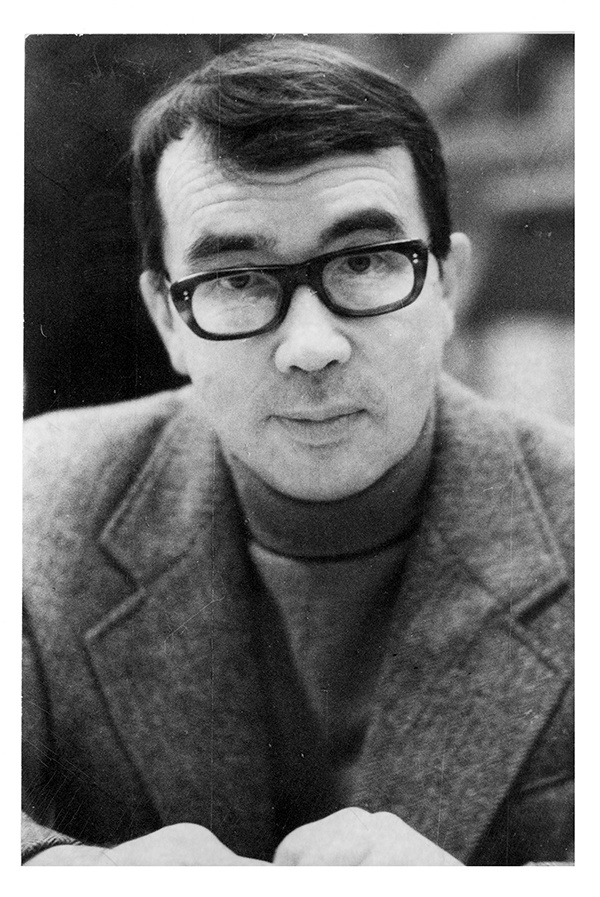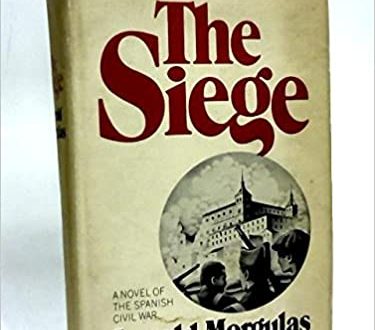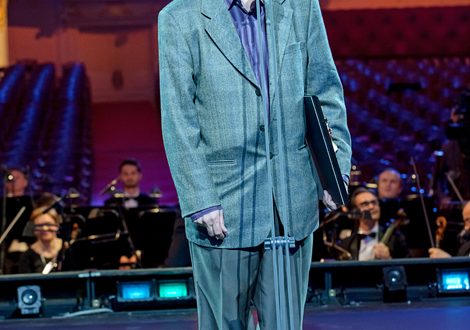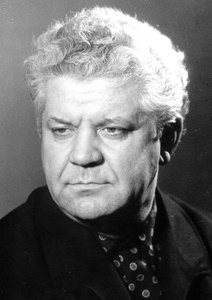
Valery Alexandrovich Gavrilin |
Valery Gavrilin
“My dream is to reach every human soul with my music. I am constantly itching with pain: will they understand? – these words of V. Gavrilin seem to be a vain alarm: his music is not just understood, it is loved, known, studied, admired, imitated. The triumphant worldwide success of his Russian Notebook, Chimes, and Anyuta ballet are proof of this. And the secret of this success lies not only in the rare, unique talent of the composer, but also in the fact that people of our time are yearning for precisely this kind of music – confidentially simple and stunningly deep. It organically blends the truly Russian and universal, the truths of antiquity and the most painful issues of our time, humor and sadness, and that high spirituality that purifies and saturates the soul. And yet – Gavrilin is highly endowed with a rare, bitter and holy gift of a true artist – the ability to feel someone else’s pain as his own …
“Russian talents, where do you come from?” Gavrilin could answer this question of E. Yevtushenko with the words of A. Exupery: “Where am I from? I am from my childhood…” For Gavrilin, as for thousands of his peers — “wounded wounds”, war was kindergarten. “The first songs in my life were the screams and cries of women who received funerals from the front,” he will say later, already an adult. He was 2 years old when a funeral came to their family – in August XNUMX, his father died near Leningrad. Then there were long years of war and an orphanage in Vologda, where the children ran the household themselves, planted a garden, mowed hay, washed the floors, looked after the cows. And the orphanage also had its own choir and folk orchestra, there was a piano and a music teacher T. Tomashevskaya, who opened the boy to a kind and wonderful world of music. And one day, when a teacher from the Leningrad Conservatory came to Vologda, they showed him an amazing boy who, not yet knowing the notes properly, composes music! And the fate of Valery changed dramatically. Soon a call came from Leningrad and a fourteen-year-old teenager left to enter a music school at the conservatory. He was taken to the clarinet class, and a few years later, when a composer department was opened at the school, he moved there.
Valery studied eagerly, excitedly, with rapture. Together with his peers, equally obsessed with Y. Temirkanov, Y. Simonov, he played all the sonatas and symphonies of I. Haydn, L. Beethoven, all the novelties of D. Shostakovich and S. Prokofiev, which he managed to get, tried to hear music wherever possible . Gavrilin entered the Leningrad Conservatory in 1958, in the composition class of O. Evlakhov. He composed a lot, but in the 3rd year he suddenly switched to the musicology department and seriously took up folklore. He went on expeditions, wrote down songs, peered closely into life, listened to the dialect of the village people, familiar to him from childhood, tried to comprehend their characters, thoughts, feelings. It was hard work not only of hearing, but of the heart, soul, and mind. It was then, in these war-torn, impoverished northern villages, where there were almost no men, listening to women’s songs, permeated with inescapable sadness and an indestructible dream of a different, beautiful life, Gavrilin first realized and formulated for himself the goal and meaning of composer creativity – to combine achievements professional musical classics with these everyday, “low” genres, in which treasures of true poetry and beauty are hidden. In the meantime, Gavrilin wrote an interesting and profound work on the folk song origins of V. Solovyov-Sedogo’s work, and in 1964 he graduated from the conservatory as a musicologist-folklorist in the class of F. Rubtsov. However, he did not leave composing music either, in his last years he wrote 3 string quartets, the symphonic suite “Cockroach”, a vocal cycle on st. V. Shefner, 2 sonatas, comic cantata “We talked about art”, vocal cycle “German notebook” on st. G. Heine. This cycle was performed at the Union of Composers, warmly received by the audience, and since then has become part of the permanent repertoire of many vocalists.
Shostakovich became acquainted with the works of Gavrilin and strongly advised him to enter graduate school. Having passed all the exams for the composer’s department plus entrance exams, Gavrilin became a graduate student. As a graduation work, he presented the vocal cycle “Russian Notebook”. And at the end of 1965, during the ten days of the Leningrad musical art in Moscow, this work was performed for the first time at the last concert and made a splash! The young, unknown composer was called the “musical Yesenin”, admired his talent; in 1967 he was awarded the State Prize of the RSFSR. M. I. Glinka, becoming the country’s youngest laureate of this high award.
After such a triumphant success and recognition, it was very difficult for the young composer to create the next work of such high artistic merit. For several years, Gavrilin, as it were, “goes into the shadows.” He writes a lot and constantly: this is music for films, theatrical performances, small orchestral suites, piano pieces. Friends and senior colleagues complain that he does not write large-scale music and generally composes little. And now 1972 brings 3 major works at once: the opera The Tale of the Violinist Vanyusha (based on the essays by G. Uspensky), the second German Notebook at st. G. Heine and a vocal-symphonic poem at st. A. Shulgina “Military Letters”. A year later, the vocal cycle “Evening” appeared with the subtitle “From the Old Woman’s Album”, the third “German Notebook”, and then the vocal-symphonic cycle “Earth” at st. A. Shulgina.
In each of these works, Gavrilin implements his creative credo: “To speak with the listener in a language that is understandable to him.” He overcomes the abyss that now exists between pop music, everyday music and serious, academic music. On the one hand, Gavrilin creates pop songs of such a high artistic level that chamber and even opera singers willingly perform them. (“Horses gallop at night” performed by I. Bogacheva). About the song “Two Brothers”, the outstanding master G. Sviridov writes to the author: “An amazing thing! I hear it for the second time and cry. What beauty, how fresh the form, how natural it is. What marvelous transitions: in the melody from theme to theme, from verse to verse. It is a masterpiece. Believe me!” The classics of the genre were the songs “Love will remain”, “Sew me a white dress, mother” from the movie “On the Wedding Day”, charming “Joke”.
On the other hand, Gavrilin creates works of a large form – suites, poems, cantatas using the techniques of modern pop music. Addressing his works primarily to young people, the composer does not simplify the “high” genres of classical music, but creates a new genre, which the musicologist A. Sohor called “song-symphonic”.
Drama theater plays a huge role in the creative life of Valery Gavrilin. He wrote music for 80 performances in different cities of the country. The composer himself considers the work on only four of them to be completely successful: “After the execution, I ask” at the Leningrad Youth Theater, “Do not part with your loved ones” at the Leningrad Theater. Lenin Komsomol, Three bags of weed wheat in the ABDT them. M. Gorky, “Stepan Razin” in the theater. E. Vakhtangov. The last work served as an impetus for the creation of one of the most significant works of Gavrilin – the choral symphony-action “Chimes”. (according to V. Shukshin), awarded the State Prize of the USSR. “Chimes” are framed by two compositions similar in genre: “The Wedding” (1978) and “The Shepherd and the Shepherdess” (according to V. Astafiev, 1983) for soloists, choir and instrumental ensemble. All 3 compositions, as well as the oratorio “Skomorokhi” completed in 1967 and first performed in 1987 (on V. Korostylev’s station), were written in the genre created by Gavrilin it works. It combines the features of oratorio, opera, ballet, symphony, vocal cycle, dramatic performance. In general, the theatricality, spectacle, figurative concreteness of Gavrilin’s music is so clear that sometimes his vocal cycles are staged in a musical theater (“Evening”, “Military Letters”).
Completely unexpected for the composer himself was his incredible success as a ballet composer. Director A. Belinsky in separate orchestral and piano pieces by Gavrilin, written 10-15 years ago, saw, or rather heard, a ballet based on the plot of A. Chekhov’s story “Anna on the Neck”. Gavrilin speaks about this not without humor: “It turns out that, without knowing it, I have been writing ballet music for a long time, and even helping to embody Chekhov’s images on stage. But this is not so surprising. Chekhov is my favorite writer. Vulnerability, insecurity, the special delicacy of his characters, the tragedy of unrequited love, pure, bright sadness, hatred of vulgarity – I wanted to reflect all this in music. The TV ballet “Anyuta” with the brilliant E. Maksimova and V. Vasiliev was a truly triumphant success, won international prizes, it was bought by 114 television companies in the world! In 1986 Anyuta was staged in Italy, at the San Carlo Theater in Neapolitan, and then in Moscow, at the Bolshoi Theater of the USSR Union, as well as in theaters in Riga, Kazan, and Chelyabinsk.
The continuation of the creative union of remarkable masters was the TV ballet “House by the Road” based on A. Tvardovsky, staged by V. Vasiliev. In 1986, the Leningrad Modern Ballet Theater under the direction of B. Eifman showed the ballet Lieutenant Romashov based on A. Kuprin’s story The Duel. In both works, which became notable events in our musical life, the tragic features of Gavrilin’s music were especially clearly manifested. In March 1989, the composer finished the score of the ballet “The Marriage of Balzaminov” after A. Ostrovsky, which has already found its cinematic incarnation in the new film by A. Belinsky.
Each new meeting with the work of Valery Gavrilin becomes an event in our cultural life. His music always brings kindness and light, about which the composer himself said: “There is light and will always be in life. And it will always be a pleasure to go out into the open, to see how great and beautiful the Russian land is! And no matter how the world changes, there is beauty, conscience, and hope in it.”
N. Salnis





